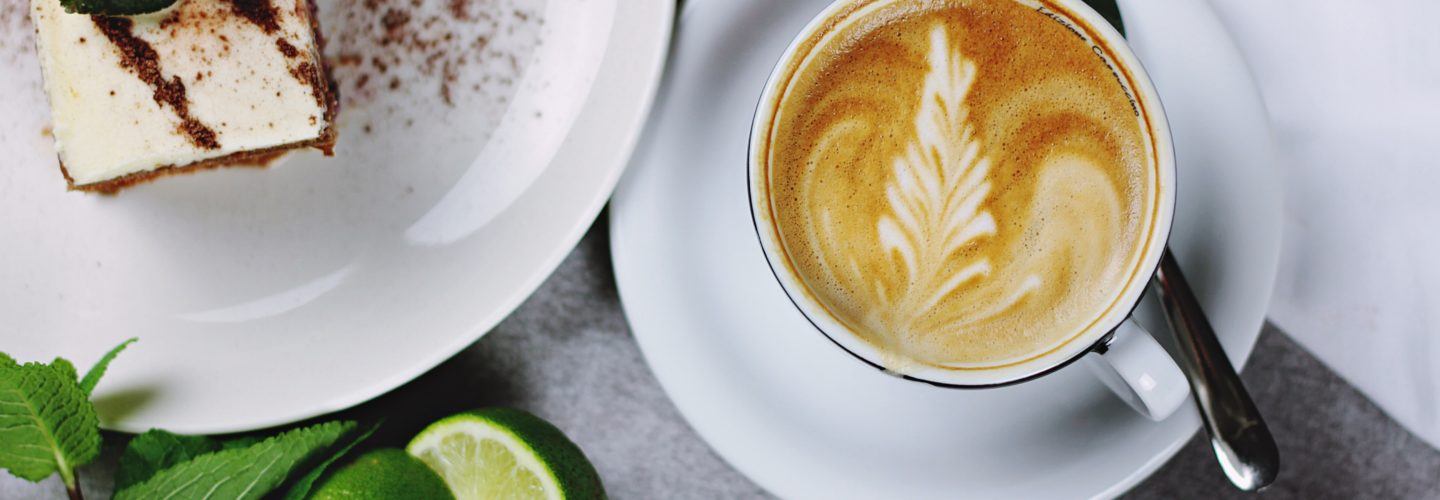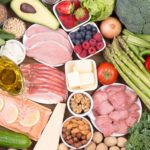This week I had dinner at a great steakhouse in New York with a very good friend. Like any two “normal” guys after a long day, all we could talk about was science, and on this particular night the topic du jour was NAFLD (non-alcoholic fatty liver disease for the non-cognoscenti). We ate, we drank, and we shook our heads in disbelief at the thought of 7 million children in the United States being afflicted with NAFLD. In the next few years NAFLD will become the number one indication for liver transplantation (not a typo).
After dinner, my friend, who I dine with almost every time I’m in NYC, made a comment about how many vegetables and how much fruit I consumed.
I had the following: a chopped salad, tuna tartare, a 12 oz filet; and we split an order of sautéed onions, brussels sprouts, and a bowl of berries.
He asked, “How are you able to stay in ketosis with all of those carbs?” I responded, basically, that for the past few months I have not been consistently in ketosis, and when I am it’s only following a long bike ride where my BHB levels may get back into the 2-3 mM range. Most days, however, I live in the 0.3 to 0.8 mM range, depending on the time of day. (In my mind, to reap the benefits of nutritional ketosis, one probably needs to consistently be in the 1-3 mM range, and for some “applications” 3-4 mM is probably ideal.)
So what gives, you may be thinking. Is Peter Attia not Mr. Ketosis? Well, my friend suggested it might be time for another one of the dreaded what-do-I-eat posts.
Anyone who knows me or who has read this blog for a while will appreciate the fact that I loathe talking about what I eat. Why? Because, it unfortunately gets interpreted by many as what they should eat. It’s like asking me what exercises I do, and inferring you should do the same. It doesn’t make sense. I have specific genetic factors, epigenetic alterations, and goals. These factors coalesce to shape my behavior – how I exercise, what I eat, what I supplement.
A little backstory first
In September of last year, for my wife’s birthday, we went to our favorite restaurant in San Diego, where we live. The day before I emailed the owner and general manager, both friends, and asked for them to have one of our favorite off-menu items on hand (the best sushi in San Diego). They happily obliged and asked which of their desserts my wife would most like. I said something to the effect of: well, they are all great, so you pick.
The next evening, after eating more sushi and sashimi than I could imagine (I ate 3 platters myself), they brought out a platter with a full size serving of each of their signature SIX desserts, each with a lit candle. We sang Happy Birthday, blew out the candles, and my daughter and wife, themselves already stuffed, proceeded to have a small forkful of each of the six desserts. My daughter said, “Daddy, these are so yummy! Why don’t you have a bite?” To which my wife echoed, “Yea, they really are ridiculous…”
And in that instant, I made a decision. I did something I had not done in 4 years (to the month, actually). The decision was this: about 3 or 4 times a year (I opted for my wife’s and daughter’s birthdays, Thanksgiving, and maybe something else), I would – for one meal – eat whatever the hell I wanted.
In the next 15 minutes I devoured the remaining 4/5-ths of EACH of the six culinary masterpieces in front of me. From cheesecake, to carrot cake, to decadent ice cream, and stuff I didn’t even recognize, I ate it. In an instant I felt both wonderful and horrible. The look on my wife’s and daughter’s faces – alone – was worth it. Their jaws on the table the whole time. The taste was beyond what I remembered (actually, much sweeter than I remembered, probably because when you don’t eat sugar for 4 years, well, you know).
I could barely get up from the table. That night, when we got home, I had a horrible headache. 1,000 mg of Tylenol and 2 glasses of water later, I still couldn’t sleep. I eventually got a few winks of sleep. The next day I felt hung over – a feeling I had not experienced since my 26th birthday. My fasting glucose was 126 mg/dL and BHB was 0.2 mM. Clearly I was out of ketosis.
I decided to go out for a glycogen-depleting workout (multiple sets of 3 min all out intervals on the bike) and about 36 hours later, after resuming my normal diet, I was right back into ketosis and felt just fine. I told my wife I was going to repeat this experience on Thanksgiving. As such, and despite how far in advance this was, I asked her to plan to make an extra bowl of my favorite Thanksgiving dish – candied sweet potatoes – baked sweet potatoes coated in melted marshmallows.
Thanksgiving came and went, and I repeated the same act of debauchery during the big feast. Sure enough, by the Sunday morning of Thanksgiving weekend, I felt back to my baseline. I haven’t gone on a bender like that since, but I’m probably due for one.
I’m sure at least some of you are asking, “Does Peter still think sugar is metabolically deranging?” The answer is absolutely, at the levels it is consumed by most Americans. If you want a refresher on my point of view on sugar, definitely give this post a re-read.
So what did I take away from this?
Somewhere between “every day” and “never” there is a tolerance I have developed to consume massive amounts of carbohydrates, and specifically sugar. Now, there are two components to this: a purely physiologic one and a behavioral one (which I suspect is heavily influenced by my physiology).
Focusing just on the physiology, I would guess I could probably “tolerate” a binge like that every few weeks with little measurable or discernable adverse effect. I won’t even attempt to argue whether it’s every 7 days, every 14 days, or every 30 days. But, it’s probably somewhere in that vicinity.
What about the behavioral side? Well, I suspect there exists a different “frequency distribution function” that describes how often I could binge like this without resuming unhealthy eating habits in the long run. If I had to guess, I think the threshold for recidivism is higher from the behavioral tipping point than it is for the physiologic one. In other words, habits matter. I can probably tolerate – physiologically – more sugar today than I can tolerate behaviorally.
One last point I’d be remiss to leave out. You should keep in mind that for a period of 4 years, my consumption of sugar (sucrose, HFCS, liquid fructose in the form of any beverage, etc.) has been less than about 5 grams per day. The average American, depending on which stats you believe (I think they are all pretty weak), consumes somewhere in the neighborhood of 100 to 120 grams per day of sugar, NOT including the liquid fructose in juice!
So, I have to at least entertain the hypothesis that 4 years of avoiding sugar has been a sufficient enough period of time to offer me some sort of “metabolic reset.” Now, I have no intention of testing this. If I was once susceptible to insulin resistance, I’m pretty sure I will always be. But, an interesting Gedankenexperiment would have me going back to one of several different dietary patterns – vegan, but with no sugar; standard American diet with lots of sugar; modestly higher carb, but still sugar-restricted – all could offer insights into the physiology of adiposity and fuel partitioning in my metabolically reset condition.
How has this shaped my current eating behavior?
Sometime early in the New Year, I started really craving more vegetables. I’ve always loved them. Even in ketosis I still ate one or two salads each day most days, but I was pretty restrictive about the quantity of vegetables that had much carbohydrate in them (e.g., tomatoes, carrots). But now, I wanted even more. Big heaping bowls of curry stir-fry. (I have to toot my horn on this one thing. I make a really good, creamy, spicy curry stir-fry.) I realized this would probably knock me out of ketosis, especially with the large amount of tofu I mix with it and the yogurt I use to make the sauce.
My lunchtime salads were getting bigger and bigger, and I was piling more and more “stuff” into them. Almost laughable by the standards of those around me.
And I noticed I was eating less meat. Not at all by “design,” but somehow by seemingly craving less. It seemed an average week would have maybe 2 servings of red meat. When a great steak is placed in front of me, believe me, I enjoy every bite, but I found I just wanted it less. I also started craving a bit more fruit, especially berries and even apples, the former I consumed in modest amounts in ketosis, the latter I did not at all. (Because I know someone will ask – do I think red meat is harmful? – the answer is no, I do not believe so. Certainly not based on evidence I’ve seen to date, including the recent story about protein. For those looking to brush up on the state of evidence implicating red meat, I’d recommend three posts – one I wrote many moons ago in response to one of the dozen epidemiology stories, one written by Chris Masterjohn in response to the TMAO data, and one recently by Zoe Harcombe in response to the protein epidemiology).
I don’t know what to make of this, of course, and it may be nothing at all, other than an evolution of preference. I’ve checked mineral levels in my body in search of a clue (none showed up). Maybe I’m over- or under-saturated in some key nutrient?
Now, since everyone seems to care how much carbohydrate I consume, here is my current framework. I put carbohydrates into 5 essentially MECE categories:
- Those I consume daily – mostly salad stuff and other vegetables; about twice a week I make a curry stir fry with tofu, for example.
- Those I consume often – nuts, berries, almond butter (which I just spoon out of the jar), super starch (both as a meal replacement and post-workout drink).
- Those I consume intermittently – a couple spoons of rice here and there, especially when I make Indian food or when we have sushi; a piece of baked potato when it looks particularly appetizing. If my daughter “makes” spaghetti, which she loves, I’ll usually have a forkful to remind her that her dad is not a complete freak.
- Those I consume only on very special occasions – exceptional desserts, for example – about 2 or 3 times a year, like the ones I consumed on my wife’s birthday, or the candied yams. (NB: One thing I decided in an instant – if I’m going on a bender, it’s not going to be for “average” dessert like some lame birthday cake; it’s got to be best in class.)
- Those I still completely refrain from – I call these the “cheap” carbs – basically all else (including cookies, potato chips, cereals, and the candy bars they keep handing me on this flight as I type this), including any liquid form of fructose, such as juice or sports drinks.
Below is a “typical” 5 days of eating over the past few months. Keep in mind, I virtually never consume breakfast, maybe once a month (e.g., if I have a breakfast meeting). Essentially, I do all of my exercise (current routine, below) in a fasted state only consuming the BioSteel’s high performance sports drink (HPSD), which contains virtually no calories – maybe 8 kcal of BCAA per serving. So, despite the dietary changes I’ve made, and the fact that I’m not in ketosis most of the time, I remain seemingly well fat adapted, though RQ is a bit higher than before.
I should point out that I spend much less time exercising than I have historically, due to time constraints. But, I still aim for the following schedule, which is interrupted by travel during at least 2 or 3 weeks each month. The schedule below amounts to about 14 to 16 hours per week of training.
Monday – high intensity lift, followed by swim
Tuesday – ride (tempo)
Wednesday – swim
Thursday – ride (TT practice or threshold)
Friday – high intensity lift
Saturday – ride (VO2 max intervals), followed by swim
Sunday – group ride or solo TT practice
I can’t believe I’m about to do this…I just have this horrible feeling someone is going to attempt to replicate this, bite-for-bite, for no good reason. Please refrain. Remember, this is what I eat because of how my body works.
Wednesday
Lunch – huge salad (bowl larger than my head) with romaine lettuce, kale, carrots, tomatoes, cucumbers, olives, mushrooms, chicken breast, 2 tbsp olive oil, 3 tbsp lemon juice, 1 tbsp white vinegar, 1 cup of almond slivers
Snack – a cup of macadamia nuts
Dinner – Another large salad, but no chicken or nuts in this one; 1 pound of salmon; bowl of berries to follow
Thursday
Lunch – huge salad (bowl larger than my head) with romaine lettuce, kale, carrots, tomatoes, cucumbers, olives, mushrooms, can of tuna, 2 tbsp olive oil, 3 tbsp lemon juice, 1 tbsp white vinegar, 1 cup of walnuts
Snack – 2 or 3 tbsp of almond butter (a zero sugar variety)
Dinner – Omelet made from 6 eggs (white + yellow), shredded cheddar, lots of other veggies; side of steamed broccoli in butter; 2 more spoons of almond butter after dinner
Friday
Lunch – same as Wednesday (I basically rotate salad back and forth about 3:1 in favor of chicken over tuna)
Snack – none
Dinner – Curry stir-fry containing tofu, carrots, broccoli, bell peppers, mushrooms, zucchini, and squash, in a sauce made from curry paste and Greek yogurt. I typically consume two heaping plates of this.
Saturday (post ride and swim)
Lunch – 7 hardboiled eggs, an avocado, 2 oz of cheese
Snack – a Fuji apple covered in almond butter
Dinner – 8 oz of steak (fillet, rib-eye, or tri-tip), 8 oz of salmon, large salad (sans meat and nuts, which I only do with lunch salads).
Sunday (post longer ride)
Lunch – The “Peter Kaufman” super starch shake (heavy cream, zero-sugar almond milk, a package of chocolate super starch, 2 tbsp of almond butter, an extra 20 g of Biosteel whey protein, frozen strawberries, ice – blend to a thick shake); I’ll drink 2 liters of this. Literally.
Snack – none
Dinner – Family sushi night! I’ll have a seaweed salad or two, huge platter of sashimi, California roll, and another specialty roll.
Lastly, because I know someone will ask, the few times I now take to measure, record, and tabulate exactly what I consume, it works out to about 3,500 kcal per day. But some days, especially when I travel, it can be as low as 2,000 kcal when I only consume one meal per day (dinner). Other days it can be as high as 5,000 kcal. But, 3,300 to 3,600 kcal per day is the typical range.
So, there you have it – the most irrelevant information you’re likely to find on this blog (except for what’s below… this is actually valuable stuff!)
Fashion tip of the month
While in NYC I realized – about 15 minutes before leaving my hotel for a very important meeting – that I had forgotten to bring cufflinks. My heart sank. I’ve never made this mistake before. I immediately realized why. While packing, and just about as I was going to grab a set, my phone rang and I was distracted. But that was neither here nor there. What was I going to do? I didn’t have time to buy a new set, and the hotel concierge didn’t have a set to lend me, so I grabbed some dental floss and tied the cuffs of my shirt together using precise surgical knots. I was pretty self-conscious that someone would notice and ask or comment, especially on a day stacked with so many back-to-back important meetings. Amazingly, no one said anything, though I could see some people looking at them and doing the double-take. Over that lovely steak dinner I alluded to at the top of this post, I told this story to my friend (who snapped the picture, below). His response? “Yea, I noticed it right away. I thought it was a new style. Very cool, actually. Kind of European.” So there you have it. Don’t say I never shared anything of value on this blog.
Photo by Toa Heftiba on Unsplash







Peter
T Ferris calls them cheat days (slow carb diet) and you’ve mentioned tasty deserts on rare occasions. If one has been diligent living a LCHF diet, how do these sugar indulgences impact metabolism? Does the body need another extended period of time to optimize fat metabolism?
Also, as a 50 year old Cyclocross racer ( https://connect.garmin.com/modern/activity/650432849 ), I race and frequently train at FTP/LT. I often feel FLAT during this top end work following LCHF – what modifications (complex carbohydrates?) do you recommend for these training /racing periods…and what complex carbohydrates do you recommend for recovery? In watching your video on swim nutrition, it seems complex carbohydrates can play a role (without unnecessarily spiking insulin).
thank you
Bill
I have really found your website most informative. I put my wife on a strict low carb diet (30-40gms carbs) and she has been on this since mid October 2014. She has Primary progressive MS, poor balance, obese, (had) high blood pressure, cannot stand unaided etc. Since starting the diet, she has shed 10kgs (or so) and her blood pressure is much improved on half does of medication. It was never controlled previously. Some signs of mobility improvement, but early days yet. I count calories, carbs, fat and protein, and my wife is on restricted calories as she is very sedentary. She isn’t hungry! and I focus on good nutrition (berries, vege, high Omega 3 (Salmon, sardines) etc. We are in our 60’s.
That by way of introduction. My questions relate to my own experience. I have steady low blood pressure, 110/70 and it has been that all my life as far as I know. Heart disease is unheard of under 80yrs in my immediate family, and many also have low blood pressure, while medically obese!! I didn’t (initially) track my own diet. I did stop eating potatoes, rice & pasta – as I couldn’t be bothered cooking those for just myself. I lost 3 kgs in 3 weeks. I was still eating my own home baked bread, jams and breakfast cereals.
So a month into the diet for my wife, I started studying nutrition, found your website (and others) and started tracking my own intake. My carbs were initially 125-160gms/day, but once I used up the cereals, and restricted myself to one slice of bread (and homemade jam!) this dropped to 80-120gms/day. I was loosing weight at 1kg per week, regardless of the carb input, and have now hit a BMI of 25. I have been not replacing carb rich foods (honey, dried fruit, cereal etc) once I have eaten the last. I gave away the pasta and rice!
Loosing weight has been absolutely effortless and unbelievable.
At 5% of my maintenance energy 2243cals, I calculate 112gms/carb per day. I suspect my energy use is higher, as I might have a higher than normal metabolism. So, am I in ketosis, or partial ketosis? I have no hunger pangs unless I push to the upper carb range (120+) and generally feel great.
Trying to understand what is going on. At the start, my calorie intake was 1900 (10 day average), I dropped this steadily to about 1650 (mid January), and then boosted this back to 1900 now that I am at the upper end of “healthy” weight. But the weight loss appeared to be steady at 1kg per week regardless. I suspect I’ll need to raise my intake much higher to get to maintenance in the near future.
Sugars do NOT appear to boost my blood pressure – I wish they did, as it goes too low at times. Though they may be needed to keep my blood pressure above 100/65! – I am a little wary of lowering my carbs too much.
So, are there different hormones at work? What is it with people like me? My fright or flight response is to faint – so much for running away. Steady work on a treadmill will bring down my blood pressure (to the surprise of my cardiologist- visited due to irregular heat beats at times) – I have been told that my sympathetic nervous system behaves differently – which is related to insulin output?
I am interested into exactly what is different between my hormonal system and yours (for example) – wouldn’t it be great if we knew, and could trigger my response in everybody?
I’m curious as to how your gut microbiome has dealt with the lack of starches to feed the “good” bacteria. I’ve been on a LCHF diet for the last two+ months and had a stool test done a few weeks back and just got the results. It was showing that my Short-Chain Fatty Acids were way down while my fecal fats were way up (ex. the tests “normal” range for LCFA was 1.2-29.1 mg/g, mine was 146.9).
I’ve been trying this diet due to autoimmune issues and want keep bring my inflammation at low levels, but I’m finding that with the gut imbalances that have come up, this would cause more inflammation. What I’m finding from research is that the gut needs carbs to feed the bacteria to help with the proper digestion and absorption of nutrients.
I’m a bit confused now as to where I should be heading here. Any ideas?
Hi Peter, Excellent info. I’m trying to lose fat and gain muscle. I circuit train 3times a week run 9miles and walk 5miles a week.I’m eating 6 times a day, eating protein 1.5 times of body weight throughout the day which is about 192g of protein for me and usually protein source is grass-fed whey protein(nothing else added) with that I 40g of fat and less than 100g of carb a day . Can I increase the fat amount or is their a good guideline for fat consumption for the result of losing fat and gaining muscle? Best,SOph
Hello Peter,
I’ve heard that some people with hypothyroidism have difficulty with a low-carb diet as it makes them more symptomatic. Is there anything to this? Is it only below a minimum threshold? Separately, I assumed one subset of people with hypothyroidism (autoimmune Hashimoto’s) would benefit from low-carb eating both by combatting the tendency to gain weight and also by reducing gluten in particular.
It’s more complicated than that. Less about carbs and more about the metabolic response to weight loss.
My endo, a thyroid maverick, has seen a small number of hypothyroid patients able to greatly reduce their dose of thyroid replacement. Some, like me, from iodine supplementation at many times the RDA (Abraham protocol), others from going gluten free. He is not sure whether removing gluten works simply by reducing gut inflammation and thereby improving bioavailability of the oral replacement or by actually reducing primary autoimmune stimulation in Hashimoto’s. He does not really care, as it works either way, for some at least. Young people at the earliest stages of hypothyroidism might, he thinks, completely escape the illness with iodine supplementation and gluten free diet, acting before the thyroid is damaged permanently.
Thanks for all this info,, but it’s really hard to find the answer to my question: How to lower LDL-P and Apo B. Just low carb diet and exercise? I have tried your search function and it keeps me cycling thru very long (but interesting!) posts. And are any supplements recommended? And does any research back up any supps for this purpose?
Niacin? Omega 3’s? Fiber? Plant sterols? Pantethine?
thank you!
I’ve been paleo for nearly 3 years and have been doing crossfit for a little more than 2.5 years, I’ve changed my body shape greatly but still struggling to lose body fat. So, three weeks ago I started the Ideal Protein protocol, the transition into ketosis was not difficult at all due to the relatively clean eating on paleo. I’ve lost approx 14 pounds in the last three weeks, hoping for another 30? At 5’3 & now 182 I’m guessing somewhere in the 145-155 lb will be a good range for me, my question is … What are your thoughts on crossfit while on such VLC diet? I currently range from 800-1200 cal/day, last week I lost 1.6lbs and my Ideal Protein program coach (also a crossfit coach) tells me to lay off the exercise for a few weeks due to the low carb/cal and the body wanting to save me from starvation so it will hold onto everything possible? While I understand the concept it is frustrating! As an RN in the ER I need the outlet of the heavy lift/workouts of crossfit to keep me sane, but I’m desperately wanting to finally reach my fatloss goals ….
If the question is can you consume a LC or VLC diet and do CF, the answer is probably yes (I could–see post titled something like “my pet peeve”). If the quesion is should I be doing CF, that’s beyond the scope of my Q&A bandwidth.
I feel like I know how you will answer this, but I will ask anyway because I am very curious.
Any thoughts on pregnancy and fasting and/or keto? I am just about 6 months and find myself sort of in a cycle of intermittent fasting. Not on purpose, I simply have been living the low carb/borderline keto lifestyle for so long I find myself never having breakfast and feeling good with one or two meals a day.
What is truly frustrating is trying to communicate my way of life to my OB/GYN who is open minded, but without the research to support my way of life, and she being armed with low-fat for prego “research” makes for an interesting conversation.
Thank you again!
I would not advise fasting or even KD during pregnancy. We have zero data in humans to suggest it’s good. Doesn’t mean it’s not, but why take a chance when so much is on the line? Even if there is a benefit couldn’t you get most of it by consuing a well formulated LC diet?
Very true, thank you!
Is it safe for me as a late 50s type 2 diabetic to plunge in and 1) go low carb and 2) stop taking pills for my low 200s range cholesterol “problem”? I really want to get off the pills but at this point I see dawn phenomenon that is scaring me even with 1000 mg x2 day metformin. I remember doing the Adkins diet in my 20s and I lost weight and felt fabulous but was talked out of it by a doctor who told me it was terribly dangerous to eat low carb high fat. Sadly I’ve been battling weight gain ever since.
So I read your first “what do I eat” and now this one and I am a bit confused. IN the first one you were eating almost zero veggies (even non-starchy ones) and mainly protein and fat. Somewhere in that post I read that we didn’t need veggies. Now however, you seem to eat an abundance of non-starchy veggies, same protein and less fat. Confused as to how no veggies went to tons of veggies and the reasoning behind it. If this is addressed elsewhere on your blog I’d appreciate a link since there is such a massive amount of information here it’s easy to get overwhelmed. Huge thanks!
Perhaps it was a typo, but the foods you list would add up to far more than 5 net carbs a day. I tried to keep my carbs under 10 net per day, and found it nearly impossible eating any amount of leafy greens, or shellfish even. I stay at about 20 per day with effort. Love all the work you are doing!
For those who do not have the “luxury” of testing with doubly-labeled water, what is a good method for estimating free-living energy expenditure? At 198cm / 135kg, is there a method that can provide a reasonable starting point? (Frequently tables and algorithms don’t work well at my end of the scale).
Metabolic carts are good for resting expenditure.
I apologize for framing my question poorly. Better expressed, do you know of a protocol or procedure (no equipment aside from scales for food and body weight) for dialing in an individual’s energy needs? Thank you for your informative site!
I read in a response you utilize the slow lift approach as detailed in the body by science book. I am utilizing this method for strength training and overall health as well. My question, after just now discovering super starch in your blog is; do you use super starch as pre or post workout shake when doing the ‘big five’ workout? Would this affect ketosis?
Last question. My father needs to lose weight being 70 lbs overweight with afib and some thickening in the heart. Do you offer consultations? All of the advice he obtains from his doctors does not seem to offer a concise option on how to approach the issue beyond ‘lose weight’.
These days I’m only using water during all workouts–lift, run, or swim.
I’m sure this is a repeat question (apologies ahead) though I haven’t seen one super similar yet in my browsing. I’m wondering if I’m one of those people ketosis just doesn’t happen for. I’ve been eating Ketogenic for over a month and seem to keep gaining. I’m convinced I’m insulin resistant and possibly leptin resistant but decreasing exercise and ‘chilling out’ a bit more certainly hasn’t helped. For the sake of experiment, I stopped gymming and running and started walking approx. 4miles a day. I admire your work and particularly how you’ve affected your own health and body transformation as I’ve been a lifelong exerciser (often overly so) as well but have always had poor body composition despite not at all eating the American diet growing up and eating paleo for about 2.5 years now. I worry that a) my body will never change and I’ll always have to starve myself to lose weight, b) I’ll always have to work out 6 days a week to maintain musculature (I’ve turned to flab and gained fat where I’ve never had it in one month!), and c) I’ll always be constantly hungry. I’m eating 1600 cals a day (maintenance is 1950ish), 75% fat with 30g or less carbs. I’ve never gained weight so fast! I’m wondering if I am one of those who you referenced on Tim Ferriss’ show that just won’t do well with Keto though I hate to believe it. I am hopeless and feel like going back to veg-only 900cals a day is my only weightloss option…also worth noting, I’ve always woken up ravenous, very much a breakfast person (which is recommended for leptin resistance at least). Curious what your reco would be regarding breakfast as you don’t eat until mid-day. Thanks in advance!
have you had your dna sequenced by 23andme and then analyzed by promethease? i’m not an expert on this subject, but i just did this and my report indicated that some people do better on low carb, some do better on low fat, and some can do either. i was one of the lucky ones in the last group.
would be interesting to know what the report showed for you.
Seeing what you eat really does help for inspiration with regard to what to put in my lunch salad, so thanks for writing this post in spite of your hesitations
Just keep in mind what I eat today looks nothing like this…
You’ve stated repeatedly that you have no idea why people are interested in what you eat, yet you entitled your blog “The Eating Academy”. Did you expect people would come to your blog to get advice on automotive repair instead?? Sorry to be crass; I’m a big fan btw. Cheers.
Interest in what to eat does not equate to interest in what I eat…
Hi – a while back I was put on a medication, which made a big difference in my day to day life. Since my college years I’ve been suffering from IBS, very severe at first and manageable towards the “end” when I was put on the medication (as an additional benefit/positive side effect). However over the period of 6-9 month I have gained over 20kg and as of today which is around one year since I’ve been taking that drug I weigh almost 30kgs more than before. Until few years ago my “natural” kept my weight at levels considered just under the suggested BMI (I’m aprox. 6’4″). At some point at the pinnacle of my physical fitness I did around 10,000 km per year cycling (this was the only type of exercise I had daily, no gym just cycling). During that time I could eat whatever (I stayed away from fast-food chains etc. and I would gain 1kg just to loose it overnight. That stopped few years ago. Today I intend to get back to cycling, however the medication I’m on make it difficult as I only have few hours in the morning, which I simply cannot wake up for. Given the fact that I feel now somewhat obese I started reading bit more about nutrition and healthy eating/lifestyle and I hope I will be proven wrong that my weight will normalise if I start exercising. Now I’m big fan of food and I do acknowledge that what you say here make sense nutrition wise. But taking that route I feel I might loose what I love the most in food – the variety of taste of different dishes. It must be very “boring” to be on that type of “diet”. I cook myself, I don’t buy ready meals, and sadly I gained weight which now I struggle with. Few times in my life I did fast for 10 days and felt the benefit of this detox, but honestly I think I’d struggle with your type of meals 🙂
Hi Peter,
you probably get this all the time, but lets say I can have up to 50g of carbs a day to stay in ketosis and maybe 130g of protein a day and the rest fat. If I don’t eat the 50g of carbs for a day could I technically eat 180g of protein. As protein and carbs both impact insulin wouldn’t a better way would be to have a kind of insulin response measurement assigned to all foods and try to stick under a certain number…bit like counting calories…but the measurements means something 🙂
Thanks,
Chris